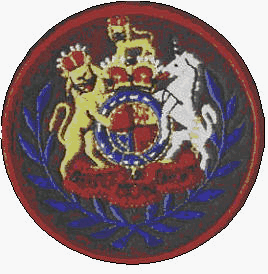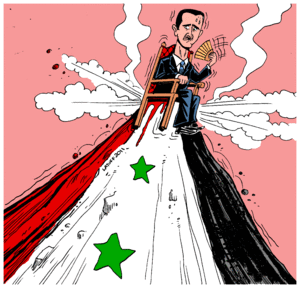This CLWG session yesterday was a very loose and rambling affair with myself and three (or perhaps four) others in John Rutherford’s living room.
Despite the great number of digressions I managed to get quite a few useful pointers about structure, level of detail, team composition and, importantly, how much more research I had to do.
With luck the game will appear some time during 1996 for a first showing, but until I’m nearer completion I won’t go as far as putting a date on it. For those potentially interested in playing the probable format is along the lines of:
Start Point – July 1945
The Labour Government has just come to power and the war is continuing against the Japanese. The basic agenda is to
- get the war ended,
- demobilise the armed forces,
- implement their policies to create a welfare state,
- rebuild Britain,
- bring order to British occupied areas after the European war,
- honour commitments to give independence to colonial states and
- ensure the security of Britain and British interests abroad.
Game turns
Each game turn will represent one year and will last about 30 minutes.
The only mandatory part of the turn will be the setting of the budget for the following turn at the very beginning of the current turn. This will allow for some of the nature of Government Accounting (GA) to show through.
Other events will be conducted as the players feel it necessary – anything missed will be slipped into the next year (or lost completely as appropriate).
Public Opinion
After each event an opinion poll will be conducted and the Government/Opposition ratings given. This should help the Government of the day decide how effective the people think it is and should give an indication to when elections are best held.
Given that the electorate are a fickle lot, and opinion pollsters not necessarily unbiased, the ratings are at best only a general guide to the trend rather than an absolute.
Other feedback will be provided in the form of press cuttings (i.e. as a headline or suitable ‘printbite’ from the editorial). I hope to have a few of these made up before the game and will dish them out as appropriate.
Changes of Government
As our democratic system requires the Government to hold a General Election within at least five years of the last one I expect that there will be at least two elections during the course of the game.
In the event that the Government loses the election then all those holding Ministerial rank will be reshuffled, this may also coincide with the retirement or resignation of senior officials or commissioned officers.
Teams
Cabinet
The main decision making team consisting of the Prime Minister, Chancellor of the Exchequer, Foreign Secretary (FCO) and Secretary of State for War (WO).
War Office (WO)
Responsible for allocation of manpower, spending the Defence budget and protecting Britain and her interests abroad.
The team will have three players each representing one of the forces, the Chief of the Imperial General Staff (CIGS) will have the casting vote and will be responsible for reporting to the Secretary of State.
The FCO will co-ordinate all external relations and dealings with colonies. One of the main sources of information about the local conditions and factions, also the key negotiators with colonial governments in the run-up to independence.
All major decisions will have to be referred to Cabinet through the Foreign Secretary.
The team will comprise the Head of the Diplomatic Service, two senior diplomats and one junior minister (the Colonial Office).
A small team looking after the Machinery of Government (MOG)Â and domestic policy issues.
This team will have as members the head of the Home Civil Service, the Permanent Secretary to the Treasury and the PM’s Private Secretary.
Umpires
Apart from myself I expect that three other umpires will be required. Two to keep the War Office and FCO busy with information from afar and one other to deal with domestic issues.
I intend that the information provided to the players will come from three distinct sources, from Diplomatic sources (embassies, experts & espionage), military sources (patrols & photo-reconnaissance) and from news media (print and radio).
These sources may not always agree and may have exclusive coverage of certain events – news media may also be prone to disinformation, political bias or censorship.
Things to tell
As the potential for information overload is very high the majority of colonies will be ignored for a variety of reasons, size, strategic importance/unimportance, lack of conflict, timescale for independence et cetera.
The main thrust of the game will concentrate on not more than half a dozen colonies – probably India, Palestine/Israel (a mandate), Kenya, Malaya and one or two other smaller areas where things could have gone wrong.
I intend to produce a compendium of colonies. This will represent the distilled wisdom of the FCO in the form of:
- a brief history of the colony,
- its political/religious/tribal factions
- faction attitudes to the British, independence, the other factions, communism, and the economy.
- The economic implications of withdrawal
- an estimated timetable for establishing a stable native government.
- The relative strategic importance of each colony
- projected consequences of its loss for the viability of other colonies.
Although the compendium can be relied on absolutely for history it only represents the belief at the time it was prepared for projected future outcomes and attitudes of factions given are those perceived by local diplomats and colonial civil servants.
Cold War Perspectives
At the start of the game the hot war is still in progress. The Americans have developed the Atomic Bomb, but have not yet used it.
As we depart from history before the Bomb is dropped it may not be, or it could be a bit earlier or later. One major point of focus for the latter part of the game (from around the third turn) is relations with the Soviet Union and the Cold War.
Although I intend to fudge history a little to prevent hindsight from being 20/20 the general attitudes of the superpowers will remain as they are.
One of the drivers of the British decolonisation must be to reduce Defence spending whilst maintaining sufficient forces in Europe to fight World War Three. In the race to go home the government must do its utmost to ensure that none of the colonies fall into communist hands.
This should have a major influence on policy and put a brake on the speed of decolonisation.
Also worth considering is the effect that the cold war has on defence spending. Britain will have to consider its independent nuclear deterrent and the method of its delivery to the target. It will also have to consider the type of conventional forces to be deployed. A list of unit types and costs will be given to the War Office and will be updated as new technology becomes available.
Military Operations
A level of commander competence will be assumed for all military operations. All that the War Office/Cabinet will be expected to provide are
- rules of engagement,
- directions for operations (e.g. low intensity counter revolutionary warfare, aggressive patrolling, high profile guarding of government & commercial assets),
- the level of manpower and any extra funds necessary to conduct operations.
Obviously many of these will be dependent upon the funds and total manpower available to the armed forces. Too many conflicts breaking out in the same year will quickly drain the treasury.
Government Accounting (GA)
GA is a very horrible area to deal with. I intend to produce a simple chart for both expenditure and income.
The income chart will show probable yields for a number of taxes at several rates – these may not fit any economic models anyone has ever studied but should give a reasonable indication for the Chancellor to plan his budget.
The expenditure chart will show Public Spending as a series of categories – some controllable and others immutable. For the controllable areas, Defence, Welfare State and Foreign & Colonial spending a chart will give approximate costs of certain activities, programmes and military units.
This should give the three planning teams a chance to tailor their activities to the funds available. It is my intention to have a laptop available to do the number crunching – a bit out of period but rather necessary given the number of factors that can be altered.
Like real GA there will be no requirement to balance the budget, nor to stick with it if it is insufficient. There is also the contingencies fund to play with as well as the ability to take supplementary estimates during the year. The only constraint that will be applied is that the original budget be delivered at the very start of the previous turn.
The first action in turn 1 (1945) will be a post-election budget setting the turn 2 (1946) budget. This introduces a time lag between setting a budget and starting to work with it of one whole turn, not that far from real GA where the budget is set in the Autumn for the following April.
Mechanisms
I have deliberately not mentioned any mechanisms for two reasons, the first is that they will remain hidden on the day and the second is that I haven’t yet worked them out well enough to explain.
I do have some very useful ideas which were supplied from the design session and I will happily explain them after the event. It is a bit of a cop-out but then we are not necessarily aware of what drives real political events and I would rather keep those playing much in the dark regarding detail of the opinion polls etc. Anyone with a burning curiosity should talk to me about it quietly and I will explain so long as they promise to umpire.
Conclusions
I am aware that I have rambled a bit about what I hope the game will look like and have in its details and mechanisms. This is because I am typing this immediately from memory and a few incoherent, illegible notes the evening after the session.
All this detail is fresh and if not typed now will doubtless be forgotten, hence the stream of consciousness style of narration. Hopefully by the time of the game it will have coalesced into a more coherent whole and the details will all be readily available for my compendium of colonies.
If all goes smoothly I hope to put the first version on at an all day venue sometime in late Spring/early Summer. The game will require around 20 people to run, of which around three or four will have to be umpires.
If you are interested in playing or umpiring then please let me know and I will try and give you plenty of advance warning of the intended date and your probable role.
Like this:
Like Loading...


















